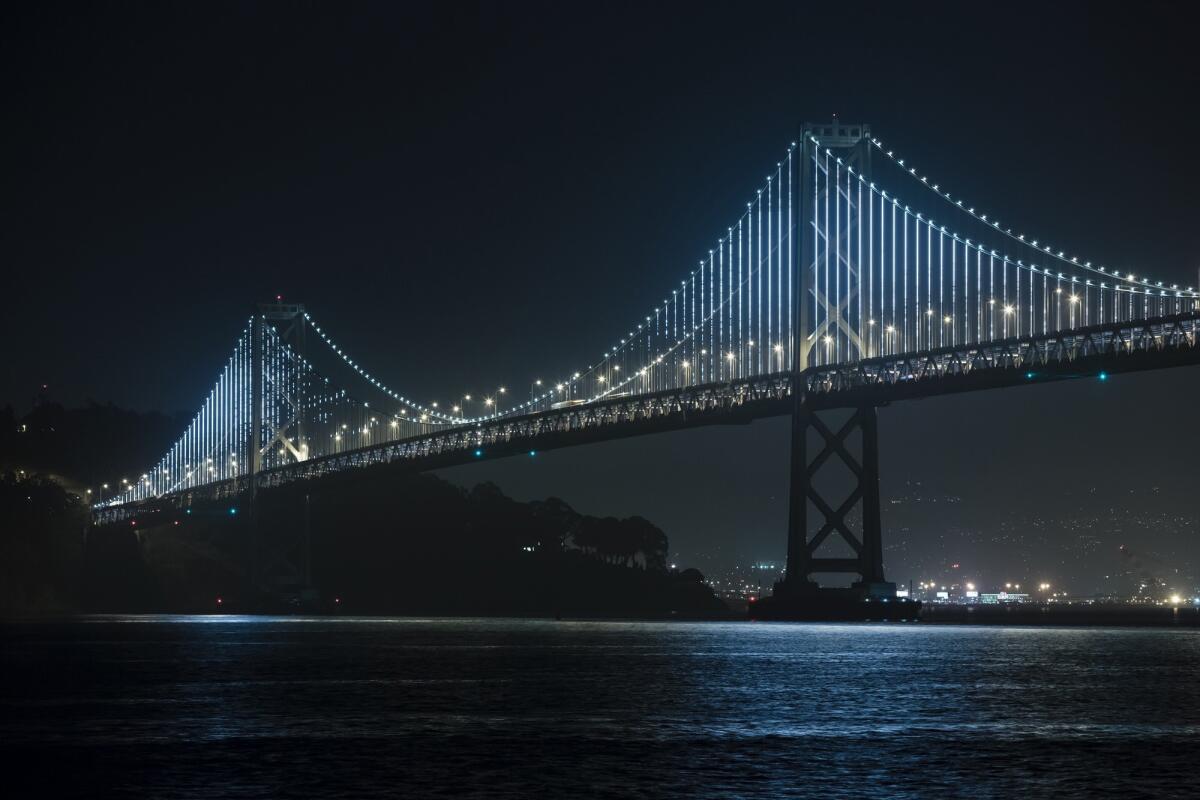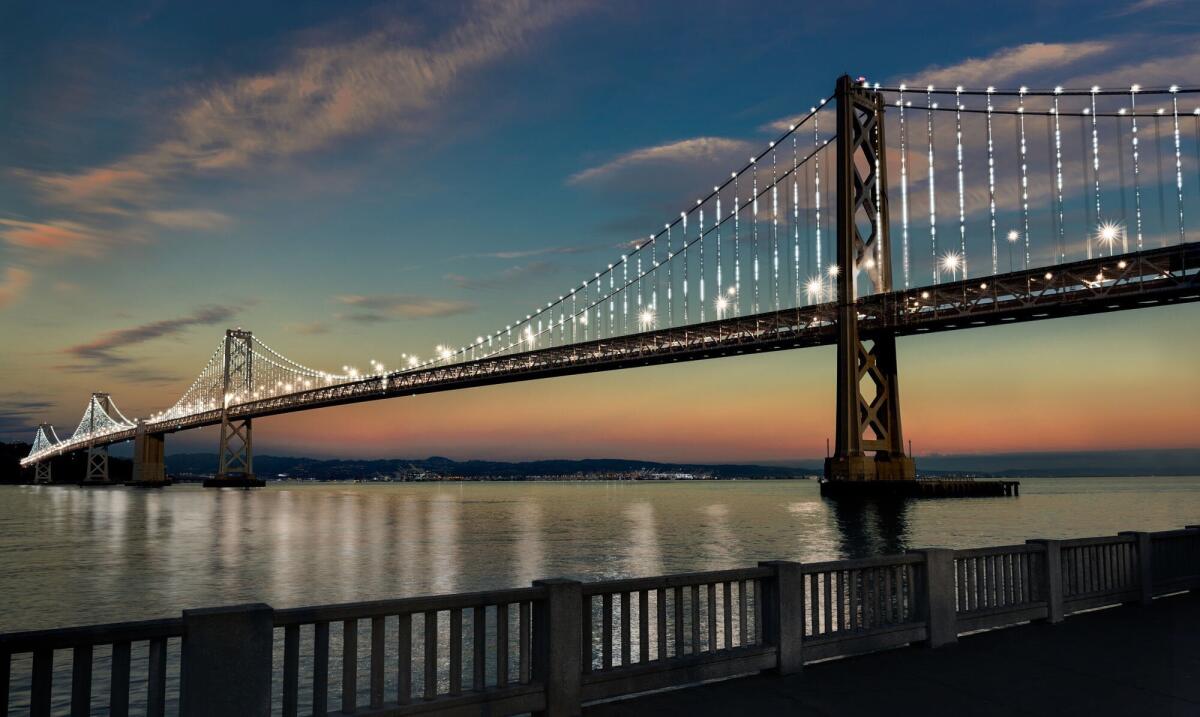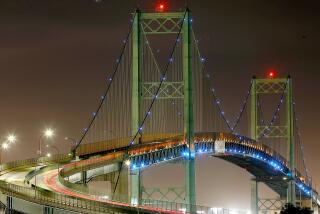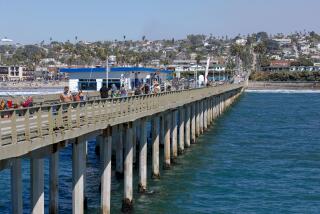Bay Bridge to be relighted, with twice the lights

In the decade after they went up, the 25,000 LED lights illuminating the western side of the Bay Bridge endured a brutal pounding.
“It’s the salty air, the wind, the fog, the rain, the 24-7 vibrations on the bridge, lightning strikes, car grit and grime — and more,” said Ben Davis, founder of the San Francisco nonprofit behind the light installation that went up in 2013.
With the lights deteriorating faster than they could be fixed, Davis asked to turn them off in 2023, leaving what he calls “a hole in the night sky” for the last year.
To restore the lights, Davis launched a campaign to raise $11 million without city or corporate funding. With $10.5 million now raised, he said, the 1.8-mile work of public art will return early next year, with more durable lights, and twice as many.
“We’re in really great shape,” he said, and news of the relighting has sent “a shiver of excitement” through San Francisco.
The public art installation, called “The Bay Lights” and designed by New York-based artist Leo Villareal, originally relied on “off-the-shelf” LEDs because they were the best available, Davis said.
After about eight years, they were suffering noticeably, with sections flickering and dying along the bridge that connects San Francisco to Oakland.

“There was no way we could keep up with the failure rate,” said Davis, founder of the public-art nonprofit Illuminate. “It was throwing money into a hole.” Shutting the lights off last year “was a tough choice.”
He said more than 1,200 people donated to the relighting effort, including five who gave million-dollar gifts.
The nearly 50,000 new, tougher lights are being custom-engineered and made by Musco Lighting in Iowa.
San Francisco restaurateur Pete Sittnick hosted fundraisers to bring the lights back. From windows, decks and patios at his two restaurants, EPIC Steak and Waterbar on the Embarcadero, guests marveled at the lights across the water for a decade.
“It was energizing to see the joy it brought to the guests, everybody taking photos, taking videos,” Sittnick said. “You could sit and watch it for an hour and it would always be different patterns.
“What we get now is, ‘What happened to the lights?’ People remember them, they see them in photos. ‘Why did they go out, and are they coming back?’ are really the two biggest questions we get asked. And thank God, now now we can tell them they’re coming back.”
With his unrivaled view of the bridge lights, Sittnick came to regard himself as their unofficial steward. When he saw lights flickering or dying, he’d alert Davis, who would in turn alert engineers.
In the beginning it was infrequent, Sittnick said, but after a decade, he was doing it every month or so. “For those of us who knew [the installation], you could tell, hey, it’s starting to fail.”
No small amount of bad press has beset San Francisco in recent years, often on themes of crime and homelessness. But “the Bay Lights are something that can bring a sense of hope,” Sittnick said.
More to Read
Sign up for Essential California
The most important California stories and recommendations in your inbox every morning.
You may occasionally receive promotional content from the Los Angeles Times.











